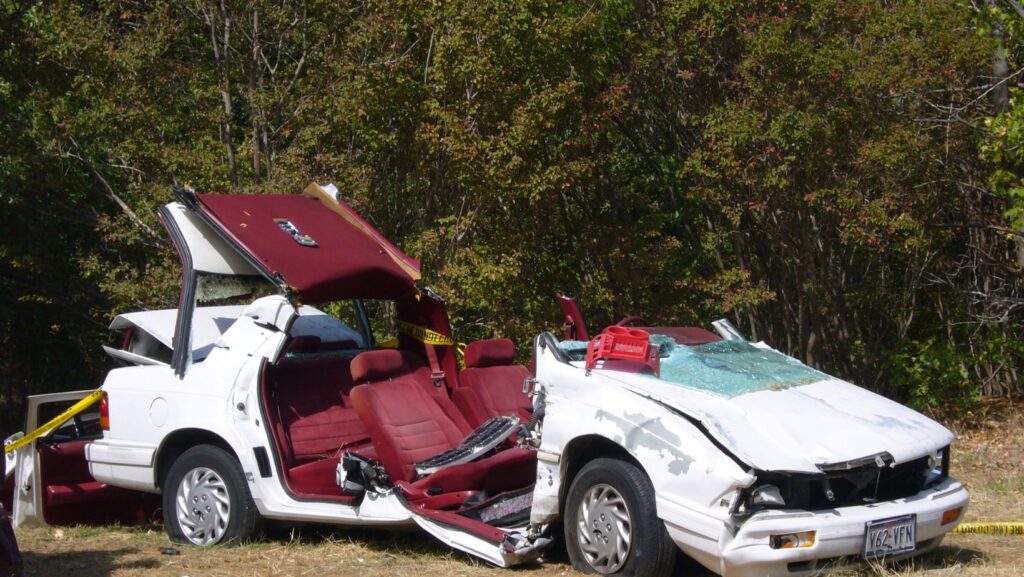An accident could have an impact on many different parts of your life, including your finances. Whether a car accident, a broken bone that requires a trip to the hospital or a flooded kitchen, the unexpected bills that follow could affect you for years to come. However, there are steps you could take ahead of time to protect yourself and your money.
If you’re in a tight spot and can’t see a way to manage the costs on your own, an emergency loan is one option that could provide you with funds at a fixed rate. Before you apply for a loan, do your research and consider any long-term costs, such as interest rates and fees.
You can’t always prepare fully for the unexpected, but there are ways to put safeguards in place in case of an accident.
Review your insurance
Your insurance policy may be a big help in covering some or all the unexpected bills in case of an accident. Take time to review the fine print in your policies before anything happens, and make sure they’re current and in good standing. You’ll want to review your insurance policies for your home, car and health, as well as life and disability insurance.
Creating a home inventory — a record of all your possessions and their value — could be helpful to get the most accurate reimbursement for your claims if future damage occurs.
After an accident happens, it’s often helpful to document what happened, take photos, get a copy of the police report, if necessary, and have proof of the incident in case you need that information when you file an insurance claim.
Shore up your savings
You may not have a lot of extra time or money after an accident, so it’s always good to make regular contributions to your savings before an accident occurs. Set up automatic deposits from your checking account to your savings account monthly so you don’t have to remember to do it every time.
Create a detailed budget that prioritizes the essentials, such as groceries, utilities, rent and car payments, for example. Consider where you can cut back on your spending, including any non-essentials like entertainment and dining out.
If you can, keep your savings in a high-yield savings account (HYSA), which may help you earn more interest on your money than you would with a traditional savings account.

Build an emergency fund
In addition to your main savings account, it could be helpful to have a separate emergency fund to be used only in case of urgent situations, such as to cover bills from an accident. You could also keep your emergency fund in a HYSA to earn the most interest.
Here are some other ways to add money to your emergency fund:
- Take on extra work. Even if it’s watching your neighbor’s dog or delivering groceries a few times per month, every small amount helps.
- As with your regular savings account, set up automatic transfers from your checking account to your emergency fund every month.
- Challenge yourself to save small amounts of money every week, such as $5 you would spend on a coffee.
Know where to turn for support
If an accident occurs, think about who you could reach out to for support.
Family and friends
Whether you need emotional, physical or financial support, don’t be afraid to reach out to those closest to you for help. While it can be difficult to ask for financial support, you may be surprised by how many people want to help you when unexpected bills are due. Be sure to establish right away whether their contribution is a gift or a loan, and if it’s a loan, take care to put an agreed-upon repayment plan in writing first.
Creditors and lenders
While your creditors and lenders may not seem like an obvious source of help, it doesn’t hurt to reach out to them if you’re struggling to keep up with your bills after an accident. See if they’ll lower your monthly payments, waive your late fees or give you an extension.
Local organizations
Some local charities and other groups in your city or state may be able to help cover certain bills in case of an accident. Dial 211 to find out more about options in your community.
Create a safety net before an accident happens
When an accident occurs, you may not have a lot of time to think or make big decisions. Instead, review your insurance policies ahead of time, make saving a priority, build an emergency fund and know where to find support.
While you can’t predict every challenge, you can look out for your future self by doing what you can to prepare now.
Notice: Information provided in this article is for information purposes only and does not necessarily reflect the views of simplyseven.net or its employees. Please be sure to consult your financial advisor about your financial circumstances and options. This site may receive compensation from advertisers for links to third-party websites.
